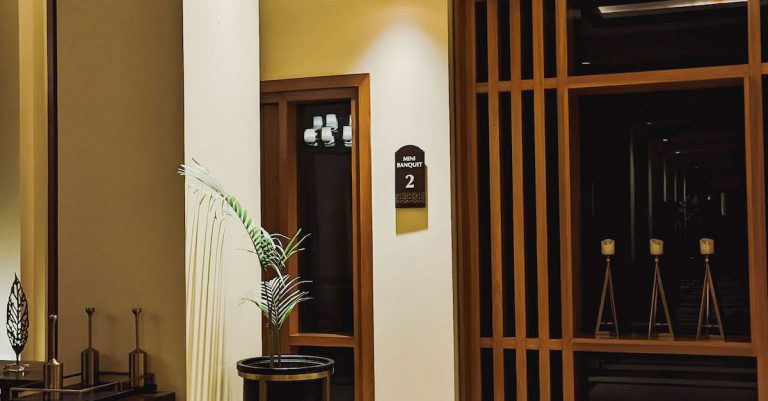In today’s digital age, access to WiFi has become an essential part of our daily lives.
Whether we are traveling for business or leisure, having a reliable internet connection is crucial for staying connected with loved ones, conducting business activities, or simply enjoying online entertainment.
However, when it comes to staying at hotels, the question arises: do hotels charge you for WiFi?
If you’re short on time, here’s a quick answer to your question: Not all hotels charge for WiFi, but some do. It depends on the hotel’s policies and the level of service they provide.
In this article, we’ll delve deeper into the topic of hotel WiFi charges and explore the factors that determine whether you’ll have to pay for internet access during your stay.
We’ll also provide tips on how to find hotels with free WiFi and offer alternative solutions for staying connected while traveling.
So, if you’re curious about hotel WiFi charges and want to make an informed decision for your next trip, keep reading!
Understanding Hotel WiFi Policies
When it comes to staying at hotels, one of the most common questions travelers have is whether they will be charged for WiFi access. The answer to this question can vary depending on the hotel’s policies. We will provide you with a comprehensive understanding of hotel WiFi policies, so you can make informed decisions and avoid any unexpected charges.
Different Types of Hotel WiFi Policies
Hotels typically offer three types of WiFi policies: complimentary WiFi, paid WiFi, and a combination of both.
- Complimentary WiFi is offered by many hotels as a free service to their guests. This type of WiFi is usually available in common areas such as the lobby, restaurant, or poolside. However, the availability and speed of complimentary WiFi may vary depending on the hotel’s location and amenities.
- Paid WIFI can be a one-time charge or a daily rate. It is important to check with the hotel beforehand to understand their WiFi charges and any additional fees that may apply.
Keep in mind that the price of paid WiFi can vary depending on the hotel’s star rating and location. Higher-end hotels may have higher WiFi charges compared to budget-friendly accommodations.
- Combination of complimentary and paid WiFi. In this case, complimentary WiFi may be available in common areas, while a fee is required for WiFi access in guest rooms. This type of policy allows guests to choose whether they want to pay for WiFi or rely on the complimentary service provided in public areas.
Factors Influencing Hotel WiFi Charges
Several factors can influence the charges associated with hotel WiFi.
- One of the key factors is the hotel’s location.Hotels located in popular tourist destinations or business districts may charge higher WiFi fees compared to hotels in less populated areas.
- The star rating of the hotel also plays a role in determining WiFi charges. Luxury hotels with higher star ratings tend to offer more amenities and services, which can include high-speed WiFi. These hotels may include the WiFi charges in their overall room rates, providing guests with seamless connectivity.
- Additionally, the type of traveler you are can also impact WiFi charges.Business travelers, for instance, often require reliable and fast internet access for work purposes. Some hotels offer premium WiFi packages specifically tailored to meet the needs of business travelers, which may come at an additional cost.
It’s worth mentioning that there are hotels that offer free WiFi to loyalty program members or guests who book directly through their official website. Taking advantage of such offers can help you save on WiFi charges during your stay.
Hotels with Free WiFi
How to Find Hotels with Free WiFi
When planning your next hotel stay, one of the most important factors to consider is whether or not the hotel offers free WiFi. Luckily, finding hotels with free WiFi is easier than ever. Here are some tips to help you locate these WiFi-friendly establishments:
- Check hotel websites: Many hotel websites now include information about their WiFi services, including whether or not it is free.
- Read reviews: Travel websites and apps often have user reviews that mention the availability and quality of WiFi at various hotels.
- Contact the hotel directly: If you can’t find information online, you can always call or email the hotel to inquire about their WiFi policy.
Benefits of Staying in Hotels with Free WiFi
Staying in a hotel with free WiFi offers numerous benefits for both business and leisure travelers. Here are a few reasons why opting for a hotel with complimentary WiFi is a smart choice:
| Convenience | Savings | Productivity |
|---|---|---|
| Having access to free WiFi means you can easily stay connected with loved ones, check emails, and plan your activities without relying on costly mobile data. | Avoiding additional charges for WiFi can save you money during your hotel stay. It’s always great to have more funds to spend on other aspects of your trip! | For business travelers, staying in a hotel with free WiFi is essential for staying connected to work. You can easily attend virtual meetings, respond to emails, and complete tasks without any interruptions. |
Having free WiFi in your hotel room allows you to make the most of your stay, whether you’re traveling for business or leisure. So the next time you’re booking a hotel, remember to prioritize hotels with free WiFi for a seamless and connected experience.
Hotels with Paid WiFi
Reasons Behind Hotel WiFi Charges
There are several reasons why hotels charge for WiFi access.
- Firstly, providing high-speed and reliable internet connectivity requires investment in infrastructure, maintenance, and support. Hotels incur costs in installing and maintaining the necessary equipment, as well as ensuring sufficient bandwidth to cater to all guests’ needs.
- Secondly, offering complimentary WiFi to guests can result in increased demand and strain on the network. This can lead to slower speeds and a less satisfactory experience for all guests. By charging for WiFi access, hotels can limit the number of users and ensure a better quality of service for those who choose to pay.
- Additionally, hotels may view WiFi as an additional service that adds value to the guest’s experience. Just like other amenities such as room service or access to a gym, WiFi is seen as a convenience that comes at an extra cost.
Options for Accessing Paid WiFi
If you find yourself in a hotel that charges for WiFi, there are several options available for accessing paid WiFi.
- Firstly, you can choose to pay the hotel’s daily or hourly WiFi fee. This option is convenient for short stays or if you only need internet access for a limited period of time. However, keep in mind that these charges can add up quickly, especially for longer stays.
- Another option is to consider joining the loyalty program of the hotel chain. Many hotels offer complimentary WiFi as a perk for their loyal customers. By becoming a member, you can enjoy free WiFi access during your stay, along with other benefits such as room upgrades or late check-out.
- If you prefer to have WiFi access throughout your trip, you might consider using a portable WiFi device or purchasing a local SIM card with a data plan. These options allow you to have internet connectivity wherever you go, regardless of the hotel’s WiFi policy.
Alternative Ways to Stay Connected
While many hotels do charge for WiFi access, there are alternative options available for staying connected during your travels. Here are three popular options:
Personal WiFi Hotspots
One great way to stay connected without relying on hotel WiFi is by using a personal WiFi hotspot. These small devices provide internet access by connecting to cellular networks.
You can easily carry them in your pocket or bag, making them convenient for travel. With a personal WiFi hotspot, you can connect multiple devices to the internet simultaneously, allowing you to stay connected wherever you go. Some popular providers of personal WiFi hotspots include Verizon, AT&T, and T-Mobile.
Local SIM Cards
If you’re traveling internationally, purchasing a local SIM card can be a cost-effective way to access the internet. By inserting a local SIM card into your unlocked smartphone or mobile device, you can enjoy local data plans at affordable rates.
This option allows you to avoid expensive roaming charges and gives you the flexibility to choose a plan that fits your needs. Local SIM cards are readily available at airports, convenience stores, and mobile network provider shops in most countries.
Public WiFi Networks
Another alternative to hotel WiFi is to take advantage of public WiFi networks. Many cities and towns offer free WiFi hotspots in public spaces such as parks, libraries, and cafes.
These networks, although not always as secure as private networks, can still provide you with internet access for browsing the web, checking emails, and staying connected on social media.
Just make sure to exercise caution when using public WiFi networks by avoiding sensitive transactions or sharing personal information.
Tips for Maximizing Hotel WiFi
Check Hotel WiFi Reviews
Before booking a hotel, it’s always a good idea to check the reviews and ratings of their WiFi service. Websites like TripAdvisor, Booking, and Yelp can provide valuable insights from fellow travelers regarding the quality and reliability of a hotel’s WiFi. By doing so, you can avoid any unpleasant surprises and make an informed decision about where to stay.
Optimize WiFi Signal Strength
Once you’ve checked into your hotel, there are a few things you can do to optimize the WiFi signal strength in your room. One simple trick is to position yourself as close to the WiFi router as possible.
Additionally, avoid any physical obstacles like walls or furniture that can block the signal. If you’re still experiencing a weak signal, you can try using a WiFi signal booster or repeater to extend the range and improve the connection.
Limit Bandwidth-Intensive Activities
Hotel WiFi networks are often shared among multiple guests, which can result in slower speeds during peak usage times. To ensure a smooth browsing experience, it’s best to limit bandwidth-intensive activities such as streaming HD videos or downloading large files.
Instead, consider downloading your favorite shows or movies before your trip, or opt for lower-resolution streaming options. By being mindful of your internet usage, you can help maintain a stable connection for yourself and other guests.
Conclusion
In conclusion, the availability and cost of WiFi in hotels can vary depending on the establishment.
While some hotels offer free WiFi as part of their standard amenities, others may charge a fee for internet access.
If staying connected is crucial for you, consider seeking hotels that provide free WiFi or explore alternative options like personal hotspots or local SIM cards.
By being aware of hotel WiFi policies and exploring alternative options, you can ensure a seamless and connected travel experience.
Remember, staying connected shouldn’t be a hassle, and with the right information, you can make an informed decision that meets your needs.
So, whether you’re a business traveler or leisure enthusiast, make sure to plan ahead and choose the best WiFi option for your next hotel stay!






